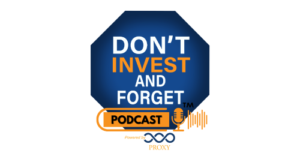In the face of ever-changing economic and market conditions, it is essential to stay informed and adapt our financial strategies accordingly. The recent fluctuations in inflation, unemployment rates, and market volatility have left many investors uncertain about the future. In this edition of “Don’t Invest and Forget,” we delve into the current economic landscape and discuss how it might impact retirees and those planning for retirement.
Analyzing the Economic Indicators:
The conference board’s leading economic index, a crucial measure of economic health, indicates that higher interest rates have cooled inflation. However, it also signals a potential recession, although there are no clear signs of one just yet. The debt ceiling debate remains a critical concern for the government, and its resolution will have a significant impact on the economy.
Challenges and Consequences:
As the debt ceiling issue persists, we witness a political football game that could have serious consequences for the nation’s economy. The massive debt hanging over the government accounts for 15% of the national budget, with interest payments alone becoming increasingly unsustainable. While politicians are reluctant to tackle this problem directly, the effects of high-interest rates are already being felt in the form of bankruptcies and increasing consumer debt.
Retirement Planning in Uncertain Times:
Given the economic uncertainties, retirees and those planning for retirement face crucial questions about their financial security and lifestyle choices. It is essential to take inventory of assets, liabilities, and cash flow to determine whether retirement plans align with one’s financial reality. Having a clear picture of one’s financial health will help make informed decisions about where to live, how to allocate resources, and adjust expectations accordingly.
Readjusting Expectations:
As the economy stabilizes and adapts to the changing landscape, readjusting expectations becomes crucial. Inflation might continue to remain above the desired range, but gradual declines are expected. Unemployment rates may fluctuate, but overall, a calm macroeconomic environment is likely to prevail. Sectors such as high-tech and biotech are expected to regain their strength, providing opportunities for investors.
Conclusion:
In times of economic uncertainty, being proactive and informed is essential for financial planning and retirement strategies. As the markets respond to changing conditions, investors and retirees must reassess their portfolios and make prudent choices to secure their financial future. While challenges persist, staying flexible and adapting to new economic realities will pave the way for a more secure retirement. Always consult a financial advisor to navigate these uncertainties and build a solid financial plan that suits individual circumstances.

